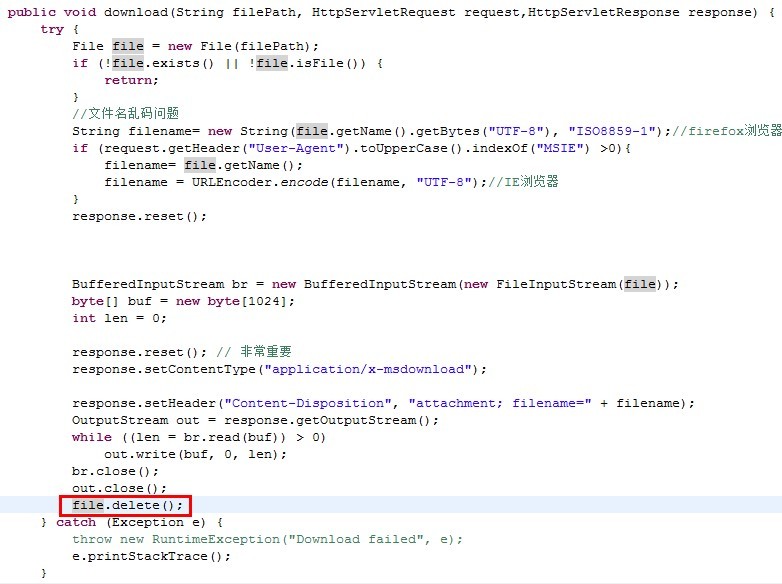使用struts2自定义拦截实现统一的身份验证模式
最近在项目开发中需要进行身份的统一认证,之前.NET的思想就是通过父页面(基类)进行控制,现在使用struts2进行开发的话,当然还是使用易做图比较方便,而且比较省事,网上提供了很多实现的例子,但是都觉得对于新手而言都有一点不清楚如何使用起来。现在我把我的整个实现方式分享出来。
首先我的项目使用的是spring+struts2+mybatis,数据库端使用的pgsql ,现在的需求是我们需要在用户登录后,将用户信息存储在session中,在后续的操作中,需要在每次请求中都判断session是否失效,失效后就提示过期重新登录。
本次就使用易做图来实现,首先我们为验证建立一个包,取名com.tc.auth,在包下建立action包和资源文件 source.struts,文件结构大概如下图所示

接着我们来编写AuthInterceptor.java文件的code 吧:
[java]
package com.tc.auth.action;
import com.opensymphony.xwork2.ActionInvocation;
import com.opensymphony.xwork2.interceptor.Interceptor;
import com.tc.blacktea.common.TCSysConst;
import com.tc.blacktea.util.SessionUtil;
public class AuthInterceptor implements Interceptor {
private static final long serialVersionUID = 5582842221490358379L;
public void destroy() {
}
/**
* 在服务启动的时候执行
*/
public void init() {
}
public String intercept(ActionInvocation actionInvocation) throws Exception {
System.out.println("<<<用户认证检测易做图初始化...");
// sessionUser 如果session中不存在用户在返回index视图
if (SessionUtil.GetSession("USER_SESSION_KEY") == null) {//这里我使用了自己写的session封装类
return "autherror";
}
String result = actionInvocation.invoke();//这里是继续原先请求的invoke,不进行其他操作。
return result;
}
}
package com.tc.auth.action;
import com.opensymphony.xwork2.ActionInvocation;
import com.opensymphony.xwork2.interceptor.Interceptor;
import com.tc.blacktea.common.TCSysConst;
import com.tc.blacktea.util.SessionUtil;
public class AuthInterceptor implements Interceptor {
private static final long serialVersionUID = 5582842221490358379L;
public void destroy() {
}
/**
* 在服务启动的时候执行
*/
public void init() {
}
public String intercept(ActionInvocation actionInvocation) throws Exception {
System.out.println("<<<用户认证检测易做图初始化...");
// sessionUser 如果session中不存在用户在返回index视图
if (SessionUtil.GetSession("USER_SESSION_KEY") == null) {//这里我使用了自己写的session封装类
return "autherror";
}
String result = actionInvocation.invoke();//这里是继续原先请求的invoke,不进行其他操作。
return result;
}
}
接着我们来看下易做图的配置是如何编写的:
[html]
<?xml version="1.0" encoding="UTF-8" ?>
<!DOCTYPE struts PUBLIC "-//Apache Software Foundation//DTD Struts Configuration 2.1//EN" "http://struts.apache.org/dtds/struts-2.1.dtd">
<struts>
<!-- default (全局)包配置 -->
<package name="userAuth" extends="struts-default" <strong><span style="color:#ff0000;">namespace="/"</span></strong>>
<interceptors>
<interceptor name="AuthInterceptor"
class="<strong><span style="color:#3333ff;">com.tc.auth.action.AuthInterceptor</span></strong>">
</interceptor>
<!-- 默认的必须放在最下面! -->
<interceptor-stack name="userAuthStack">
<interceptor-ref name="AuthInterceptor"></interceptor-ref>
<strong><span style="color:#ff0000;"><interceptor-ref name="defaultStack"></interceptor-ref></span></strong>
</interceptor-stack>
</interceptors>
<!-- 默认易做图,此包下所有的ACTION将都被拦截。如果ACTION再定义了易做图,则失效 -->
<<strong>default-interceptor-ref</strong> name="userAuthStack"></default-interceptor-ref>
<global-results>
<!-- 首页 -->
<result name="index">/jsp/index.jsp</result>
<result name="adminLoginPage">/jsp/index.jsp</result>
<result name="autherror">/jsp/Error.jsp</result>
</global-results>
<!-- 用户退出登录 -->
<!--<action name="existLogin_*" class="existLoginAction" method="{1}">
<result name="index">/jsp/Error.jsp</result> </action> -->
</package>
</struts>
<?xml version="1.0" encoding="UTF-8" ?>
<!DOCTYPE struts PUBLIC "-//Apache Software Foundation//DTD Struts Configuration 2.1//EN" "http://struts.apache.org/dtds/struts-2.1.dtd">
<struts>
<!-- default (全局)包配置 -->
<package name="userAuth" extends="struts-default" <strong><span style="color:#ff0000;">namespace="/"</span></strong>>
<interceptors>
<interceptor name="AuthInterceptor"
&nb
补充:软件开发 , Java ,



